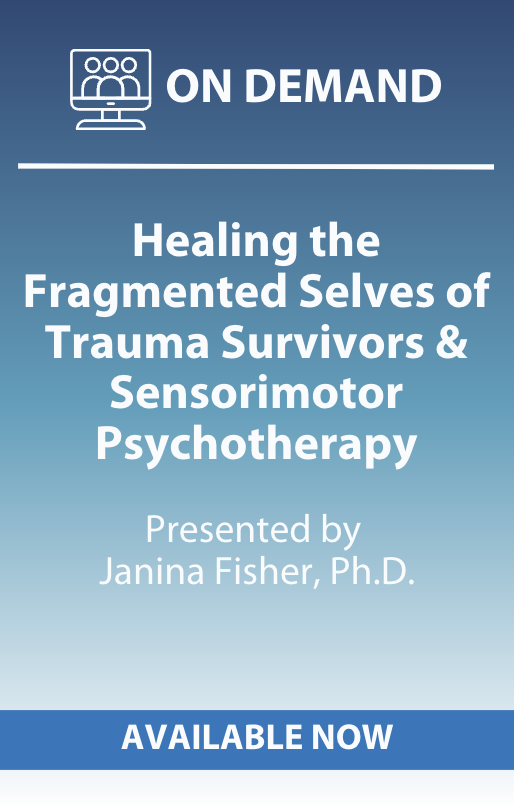Description
This workshop is on-demand, content will be available immediately after purchase.
Footage and all course content (certificate, videos, quiz) will be available until November 4, 2024. Extensions cannot be granted under any circumstances.
Registration will close on October 28, 2024.
Healing the Fragmented Selves of Trauma Survivors: A Trauma-Informed Approach (3 hours)
Self-rejection is a survival strategy that maintains children’s attachment to abusive attachment figures by disowning themselves as “bad” or “unlovable.” This deeply painful failure of self-acceptance is adaptive in an unsafe world but results in lifelong shame and self-loathing, difficulty self-soothing, identity confusion, and complications in relationships with others.
To overcome this alienation from self, the Fragmented Selves approach (Trauma-Informed Stabilization Treatment or TIST) focuses on cultivating mindful awareness of clients’ disowned selves and disowned experience. As individuals learn to relate to their overwhelming emotions and impulsive behavior as evidence of trauma-related parts, they develop increased ability to observe rather than react and to tolerate distressing affects rather than acting out. Using strategies inspired by polyvagal theory, Sensorimotor Psychotherapy and Internal Family Systems, we will explore the therapeutic power of fostering clients’ secure attachment to their most deeply disowned selves.
Sensorimotor Psychotherapy: Somatic Interventions in the Treatment of Trauma (3 hours)
In surviving trauma, individuals are left with a host of easily re-activated physiological responses and an inadequate memory record. Uncertain about what happened, they interpret the somatic activation as data about “me:” “I am still not safe,” “I am worthless and unlovable.” Divorced from the events that caused them, overwhelming emotions and sensations, intrusive images and memories, chronic expectations of danger, self-destructive impulses, and numbing and disconnection communicate physiologically that the client is still in danger, that ‘it’ is still not over.
This presentation will review recent neuroscience research that explains how traumatic experience becomes encoded in both mind and body, extending traumatic responses far beyond the original events. New neurobiologically-informed somatic techniques drawn from Sensorimotor Psychotherapy can directly address the non-verbal memories and physiological symptoms, offering renewed hope for long-term relief to traumatized individuals.






